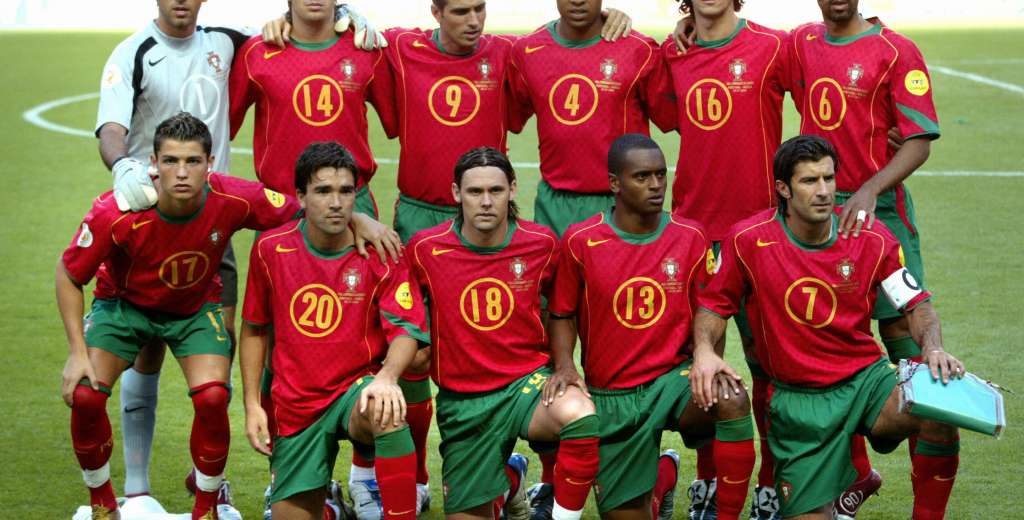The Geração de ouro was the generation of footballers that turned Portugal into a competitive National Team
Historically, the Portuguese National Team has never been characterized by being competitive, compared to other countries such as Italy, Argentina, Spain, England, Germany, and Brazil, among other nations. Perhaps the only exception to the rule is Eusébio da Silva, considered by FIFA to be one of the best European players of the 20th century and one of the greatest strikers in football history. This player led Portugal to third place in the 1966 World Cup. But until the end of the 20th century, the history of the National Team was very poor. Only 2 World Cup participations in 16 editions and 2 UEFA Euro participation in 10 editions.
Eusébio da Silva is considered by FIFA to be one of the best European players of the 20th century
However, since 2000, Portugal has qualified for all World Cups and all UEFA Euros. Not only did they qualify, but also began to compete and represent Portugal with dignity. This is the Geração de ouro (golden generacion), the generation of Portuguese footballers that forever changed the country.
The process of training elite Portuguese football players was slow. It could be said that the beginning of the Geração de ouro started in 1989 and the end occurred in 2006. In 1989 and 1991, Portugal was the two-time champion of the U-20 World Cup. Two great generations of players came together. Players like Joao Pinto, Paulo Sousa, and Fernando Couto won the '89 title in Saudi Arabia, and then Jorge Costa, Abel Xavier, Capucho, Manuel Rui Costa and Luis Figo were champions in 1991.
The Portuguese National Team that won the 1991 U-20 World Cup.
At the youth European level, the Portugal National Team also achieved several achievements. 5 times champion of the UEFA European Under-17 Championship, 1 runner-up and 1 third place. 2 times champion of the UEFA European Under-19 Championship and 4 runners-up. 1 runner-up in the UEFA European Under-21 Championship and a third place. All these achievements were achieved in just 17 years. These wins laid the foundation for Portugal to become a powerful team. Thanks to these achievements, from 2002 onwards, Portugal qualified for all the World Cups, even obtaining a fourth place in 2006. In the UEFA Euro, this generation managed to reach the semifinals in 2000 and were runners-up in UEFA Euro 2004. Curiously, despite coming very close to achieving it, this generation never managed to win a title with the Portugal senior squad.
Figo was one of the best players of the Geração de ouro
The best players of this generation were Luís Figo (one-time Ballon d'Or winner), Pauleta (Portugal's second top scorer), Fernando Couto, Rui Costa, and of course, Cristiano Ronaldo, the best Portuguese footballer in history. CR7 debuted in the Portugal Senior Squad in 2003 at the age of 18 and with this generation, he was runner-up in the UEFA Euro 2004 and obtained 4th place in the 2006 World Cup. Cristiano then led the future generations to obtain UEFA Euro 2016 and the 2018-19 Nations League.
Cristiano Ronaldo won UEFA Euro 2016 with the Portugal National Team
Geração de ouro was and still is very important for Portugal. That generation showed that the Portuguese National Team could compete at a world level. It was also important to change the mentality of the fans in Portugal. Before, qualifying for a World Cup was considered a feat, but now it is mandatory. Not playing a World Cup or a UEFA Euro would be considered a great failure.

